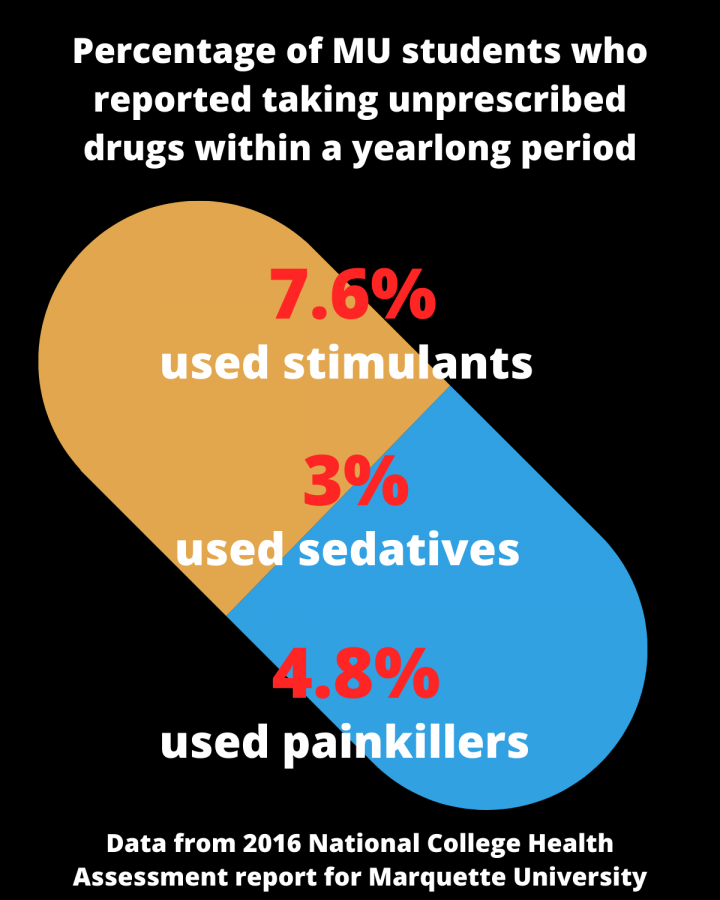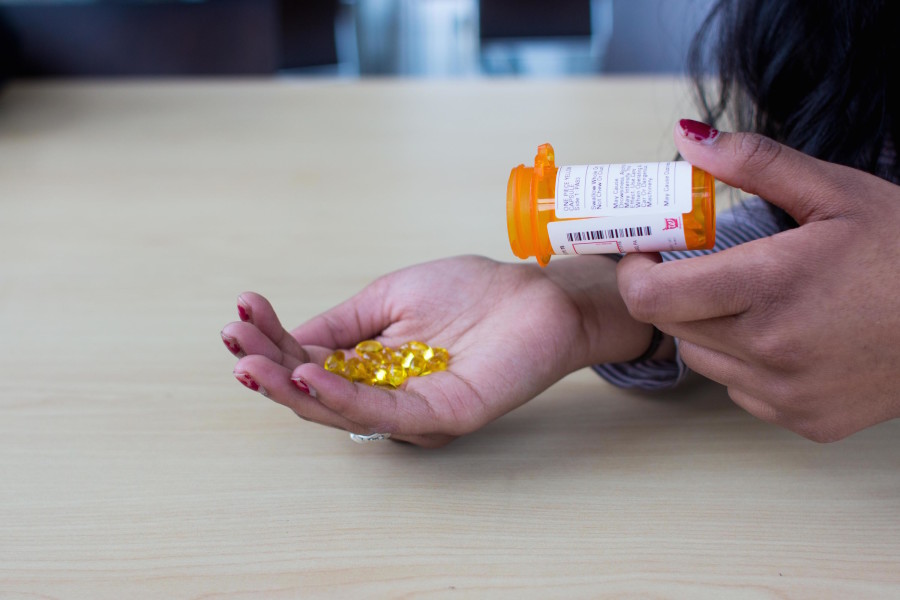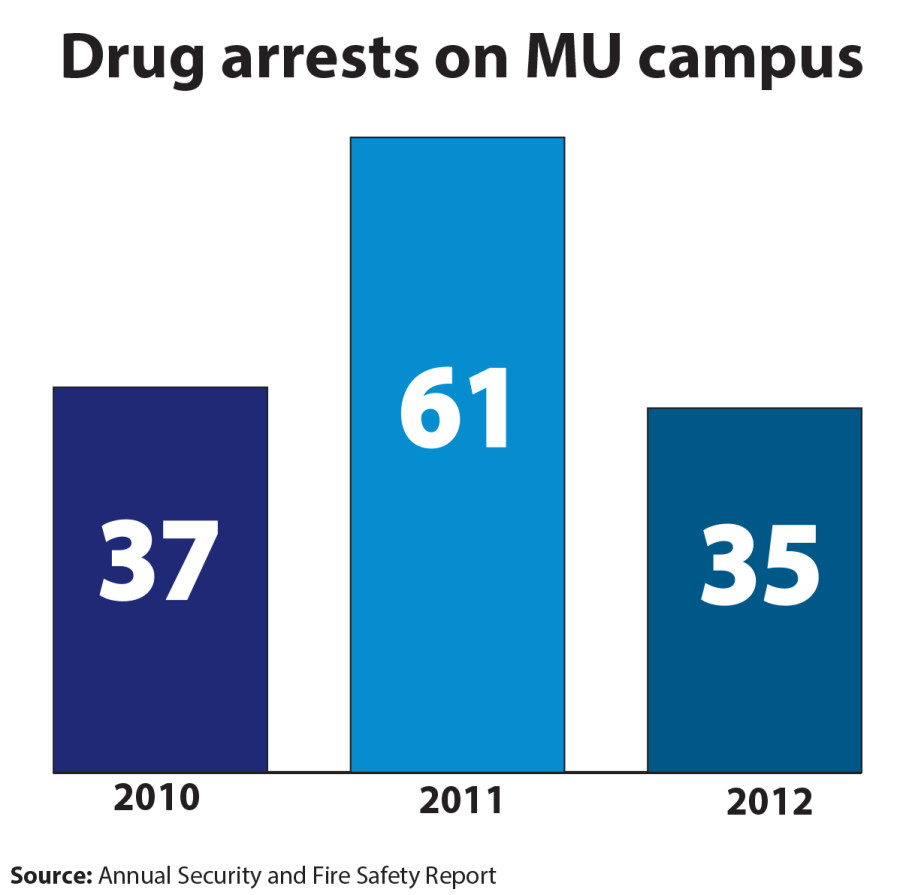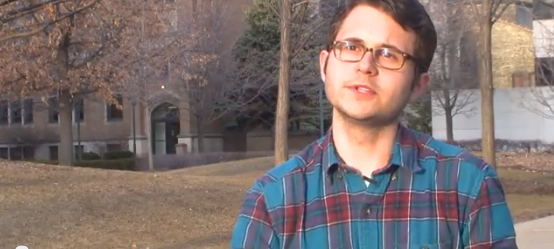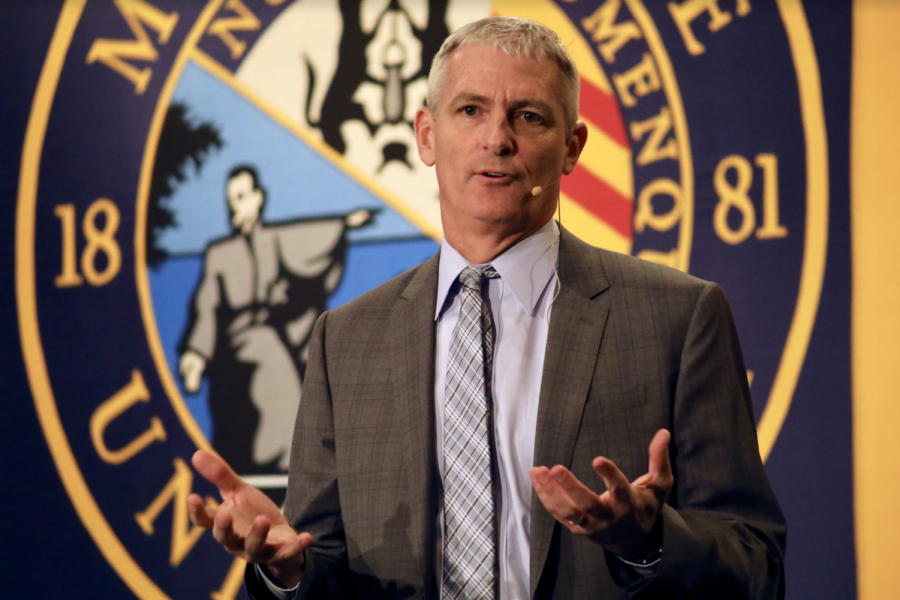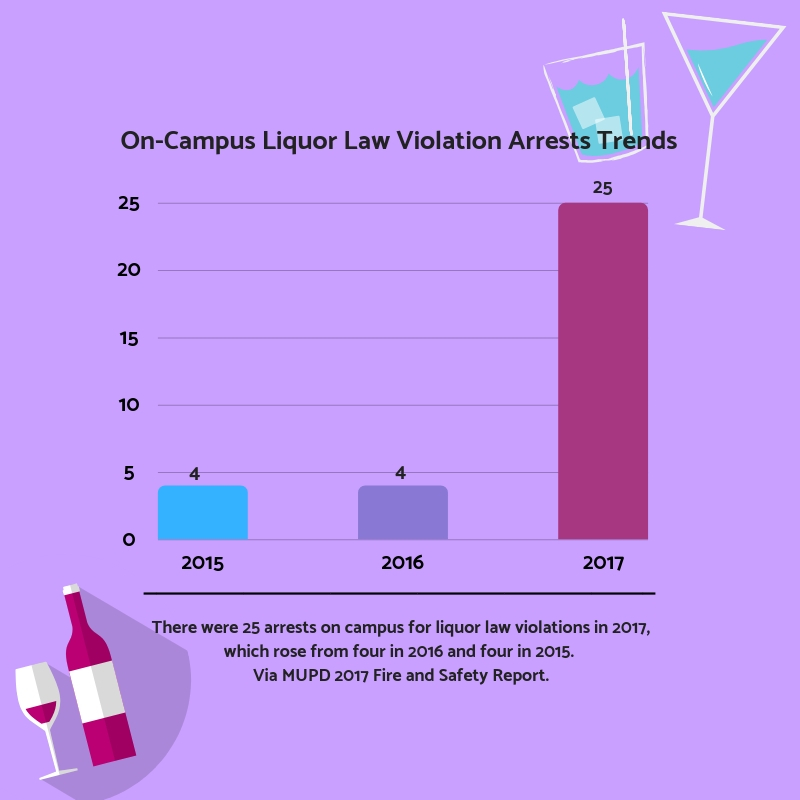Jack Barrett doesn’t like telling people he has an Adderall prescription.
“If someone finds out, they want it,” Barrett, a sophomore in the College of Health Sciences said. “I feel like that’s a problem.”
Barrett said he’s been asked multiple times by students if he’s willing to sell his medication.
When he says no, some try to persist. Barrett said students call him “lucky” or “cool” for taking Adderall.
Barrett was diagnosed with attention deficit hyperactivity disorder — a cognitive disorder that affects attention and the ability to sit still — as a junior in high school. He was prescribed Adderall to manage symptoms like hyperactivity and continues to take it regularly.
“It helps me focus and do things normally without having to struggle,” Barrett said.
The students who ask for Barrett’s medication don’t say it’s to treat their ADHD. Rather, Adderall, along with similar stimulants like Vyvanse and Ritalin, is often used as a “study drug.”
Stimulants include both illicit drugs, such as methamphetamine and cocaine, and ADHD medication. The drugs increase energy and alertness.
Jodi Blahnik, a senior psychologist at the Counseling Center, said the effects of ADHD medication could be appealing to some students.
“For someone without ADHD, certainly it’s going to make you focus,” Blahnik said.
In addition to studying, the drugs are also used for dieting, partying and athletics, Sara Smith, director of Marquette’s Alcohol and Other Drugs Prevention program, said in an email.
Nathan*, a senior in the College of Business Administration, was diagnosed with ADHD in high school and prescribed Vyvanse. He said Vyvanse helps his golf game.
“I was locked in on every shot,” he said.
Nathan uses stimulant medications for schoolwork, too. Before he got his prescription, Nathan said he took Adderall a few times to study for exams. He said it was incredibly easy to get his hands on the drug.
“(Students) hand it out like candy,” Nathan said.
Nathan doesn’t take his medication every day. He said he avoids taking it if he doesn’t have a lot of work to do, and sometimes gives leftover pills to friends.
“I’m not a drug dealer. I don’t make them pay for it,” Nathan said.
Nathan said that during peak study times like midterms and finals weeks, most of his classmates are frantic about getting good grades.
“Everybody’s like, ‘Do you got Adderall?’” Nathan said.
Both Nathan and Barrett said they know of students hoarding stashes of ADHD medication to sell.
The Drug Enforcement Agency categorized Adderall and Ritalin, another ADHD medication, as Schedule II substances, meaning they have “high potential for abuse, with use potentially leading to severe psychological or physical dependence.”
7.6% of Marquette students reported taking stimulants that were not prescribed to them at some point in the past year, according to a National College Health Assessment report conducted in 2016.
Among the other prescription medications measured in the survey — antidepressants, painkillers and sedatives — stimulants were the most commonly used without a prescription.
“The (American College Health Association)-NCHA appears to be both reliable and valid and of empirical value for representing the nation’s students and specifically Marquette,” Sara Smith, director of Marquette’s Alcohol and Other Drugs Prevention program, said in an email.
A 2016 survey by the National Survey on Drug Use and Health indicates that prescription drug misuse is particularly prevalent among young adults. Those aged 18-25 years old abused prescription drugs at a rate six times higher than that of those aged 12-17 years old.
College students likely constitute that young adult data, Smith said.
“Among people 18 to 22 years of age, full-time college students are twice as likely to use a stimulant for nonmedical reasons … compared to those who aren’t in college or are only part-time students,” Smith said in an email.
Stimulants are fast-acting, meaning they only last a few hours. Blahnik said their lifespans could be perceived as a benefit over other drugs like marijuana. This, combined with the need for focus, make the drugs appealing to use while studying.
Students who give away their medications might not know they are participating in a crime. In Wisconsin, unlawful possession of amphetamines such as Adderall results in a $5,000 fine and/or one year in county jail for a first offense.
“I think that’s kinda heavy,” Judy Evenson, a psychiatric nurse at the Counseling Center said. “(Students) don’t realize the ramifications of giving their prescription drugs because they’re naive.”
Additionally, warning signs that students are using study drugs may be difficult to spot, Logan Newstrom, a senior in the College of Health Sciences, said.
Newstrom said students tend to joke about the issue, by mentioning they want study drugs to cram for tests.
“It’s hard to (tell if) that was a joke or they’re actually being serious,” Newstrom said.
Newstrom is a resident assistant in Schroeder, and he said that the daily interactions he has with his residents are often humorous and casual. He is, however, trained to act should he receive concerning information about students.
“We are told to intervene should anything go wrong,” Newstrom said. If a student is acutely intoxicated, for example, RAs have a safety procedure to follow.
Should staff become aware of a change in behavior or activities that seem concerning, RAs would then consult with supervisors, Mary Janz, executive director of Housing and Residence Life, said in an email. If a student is found in possession of drugs unprescribed to them, RAs are supposed to contact Marquette University Police Department.
The normalization of study drugs may mask how risky it is to use or distribute them. Barrett said chatter about the drugs is so flippant, he has to remind his peers that using unprescribed medication is illegal.
“If you don’t have a prescription and you take it, you’re abusing a controlled substance. That’s really not okay,” Barrett said.
Besides potential legal consequences, students who use study drugs may have overlooked other information, Evenson said. She said stimulants don’t help students retain knowledge, so there’s no guarantee they will improve grades.
“While it might give you that ability to stay up … you didn’t allow yourself to sleep to consolidate memory,” Evenson said.
When misused, Blahnik said medications like Adderall and Vyvanse can seriously overstimulate the human body. Study drugs can produce side effects such as the jitters, insomnia and loss of appetite.
In severe cases, misuse can lead to heart attacks, strokes and death.
The amount of deaths related to a psychostimulant overdose is on the rise. The Center for Disease Control reported that more than 10,000 Americans died from a psychostimulant overdose in 2017, a 37% increase from 2016.
Before she began her job at the Counseling Center, Evenson worked at the Children’s Hospital of Wisconsin in poison control. Around finals week or periods of intense study, she said she would get disturbing calls.
“I would get calls from friends, family and even (emergency rooms) that … an individual had collapsed (because of study drugs),” Evenson said.
Evenson said she transitioned to the more educational side of health care in part to teach students about the risks of taking medications not prescribed to them.
“Your peers with ADHD might be taking it, so there’s an assumption that it’s safe,” Evenson said.
Even with a prescription, Nathan said he’s worried about the possibility of addiction.
“I definitely say I’m dependent on it, but I don’t know if I’m addicted,” he said. “I try to not put too much thought into it in case I do become addicted.”
Typically, if Nathan has assignments to do, he said his first thought is to take the medication.
“You take it once, and you get a million things done that night … and then you’re gonna try to go take it again,” Nathan said. “And all of a sudden, you have a little piece of homework and you’re like, ‘I should get some Adderall.’”
Individuals using study drugs on college campuses often expose themselves to much higher doses than are typically prescribed. Evenson said the need for a stronger high catalyzes a downward spiral.
“After a while, that high wears off. … Pretty soon, you’re chasing that higher dose, and you’re getting into very dangerous territory,” Evenson said.
However, the amount of harm a student might incur from stimulants depends on how much they take and their pattern of use.
While it is likely for stress to escalate use patterns, contributing to cravings and relapse, this does not mean that non-abusing individuals who are prescribed the medication and are stressed will become addicted. As is the case with other forms of abuse, many factors must converge to facilitate addiction, said John Mantsch, chair of the Department of Biomedical Sciences, in an email.
Evenson said she sees parallels between the rise of study drugs and other public health crises like vaping.
“I’m seeing a lot of students … thinking they were doing something that was healthy, and now they’re realizing that it’s not,” she said.
Experts have drawn attention to the potential similarities between opioid abuse and stimulant abuse. However, Mantsch said he is skeptical of this line of reasoning.
“Although there is comorbidity between stimulant use (cocaine) and opioid abuse, there is no clear link between ‘study drugs’ and opioids,” Mantsch said in an email.
While there could be parallels drawn between the illicit use of prescribed medications and opioids, Mantsch said there are important distinctions. For example, while stimulants can produce symptoms of withdrawal, those symptoms are far more pronounced after opioid use.
Illicit stimulants have not seen increases in popularity on par with prescription medication, Mantsch said.
“Even as the use of study drugs is increasing on college campuses, there does not appear to be an increase in the use of cocaine or meth,” Mantsch said in an email. He also said that since many did not see the opioid crisis coming, he would not dismiss the possibility of study drug abuse becoming an epidemic.
The Counseling Center is acutely aware of prescription drug abuse on campus, Evenson said. As a result, Evenson said she and other psychiatric practitioners do not prescribe stimulants to students.
“We’re not trying to punish those individuals that need that medication, but this medication is also highly abused,” Evenson said.
The Counseling Center does provide preliminary screenings for ADHD.
“People who … think they have ADHD, they can certainly come in, and we can do a screening for them,” Blahnik said.
Ultimately, individuals who hope to get ADHD medication have to go off campus. This acts as a hurdle for someone seeking the medication for a recreational or alternative purpose, Blahnik said.
Blahnik said professionals at the Counseling Center offer alternatives to medication, such as regularly scheduled therapy and mindfulness exercises. For students struggling with study habits, she said breathing techniques and time management can help. A 2012 study conducted by psychologist Claire Advokat suggests that behavioral therapy aimed at teaching good study habits can be more effective than medication for long-term academic success.
Students can also feel safe to disclose their potential addictions, Blahnik said, as confidentiality is paramount to the work at the Counseling Center. The center does not disclose information to student conduct or MUPD unless they believe the life of the student is in danger.
“We don’t want to be looked at like a policing body,” she said. “If this doesn’t feel like a safe space to talk, people aren’t going to talk.”
The Alcohol and Other Drugs Prevention program utilizes “social norming posters,” presentations and social media to address study drug abuse, Evenson said.
“(We focus) on normalizing that the healthy majority of students do not engage in prescription drug abuse,” Smith said in an email.
In addition to those efforts, Smith and the Division of Student Affairs implemented a pre-matriculation program for first-years. For the past three years, students were given an optional Everfi online course about prescription drug abuse.
“We see over 90% of our first year students complete this program providing baseline knowledge and prevention education,” Smith said in an email.
Barrett said he hopes the stigma of using prescription medications eventually subsides. He said that students have mythologized the drug.
“If you know someone who has (Adderall), be thoughtful of how you approach talking about it,” Barrett said. “It’s not this miracle thing.”
*Editor’s note: Nathan’s name has been changed to protect his identity.
This story was written by Lelah Byron. She can be reached at [email protected].

